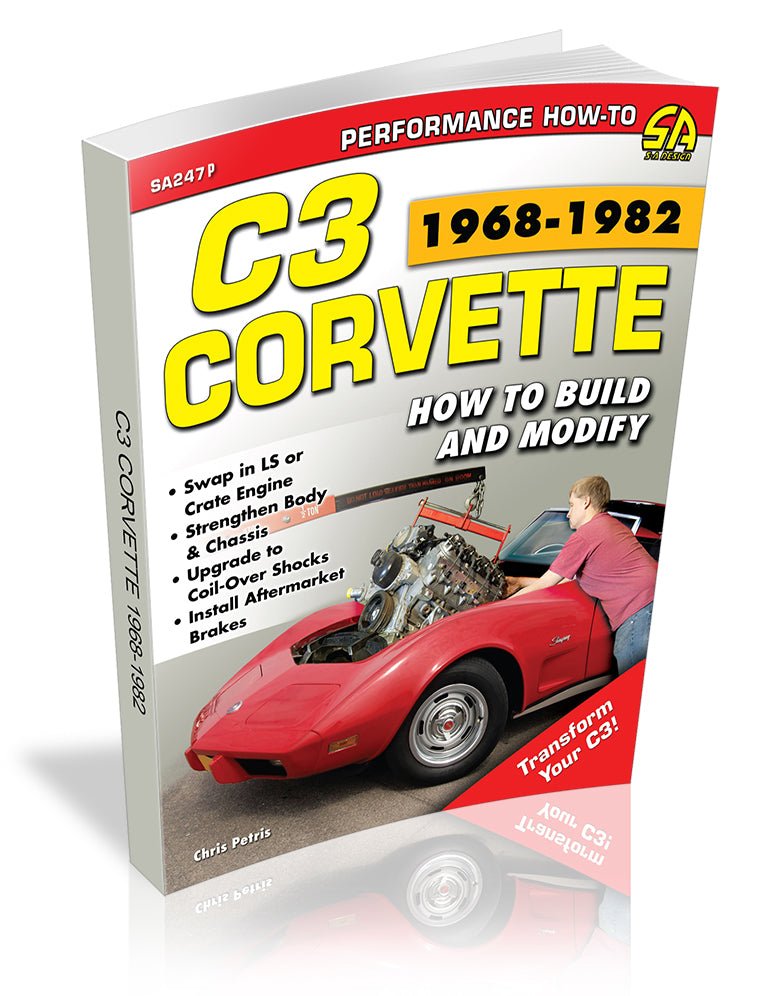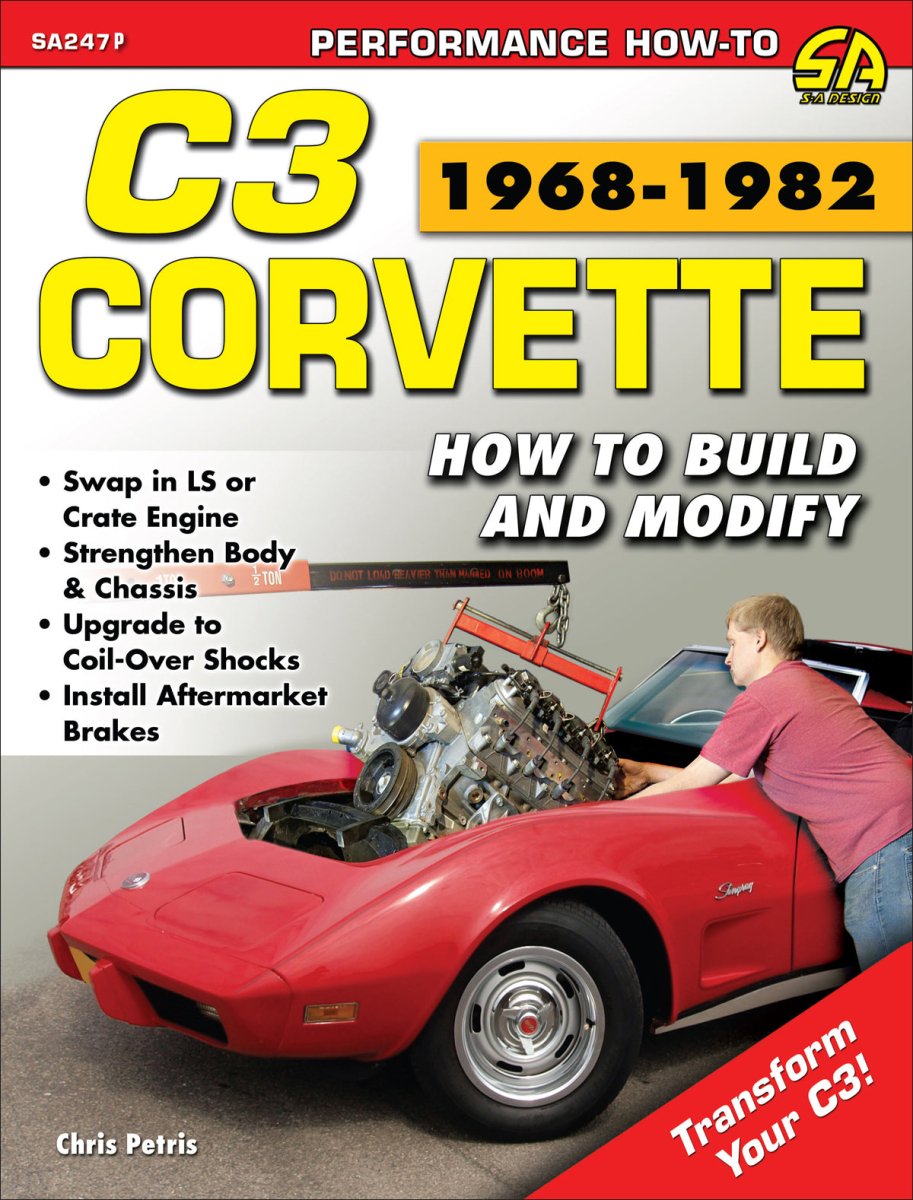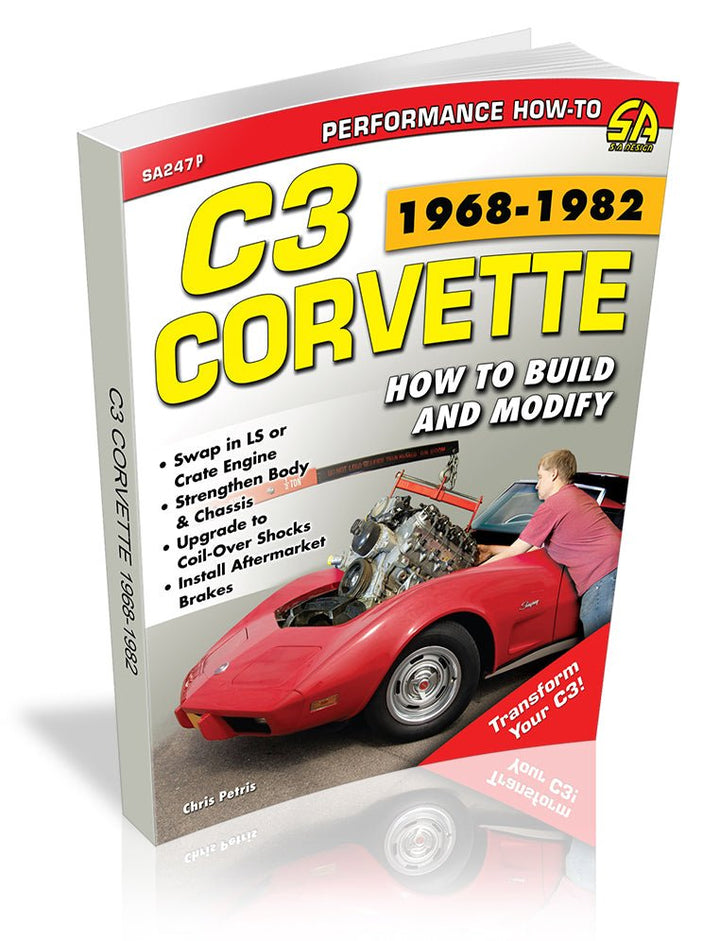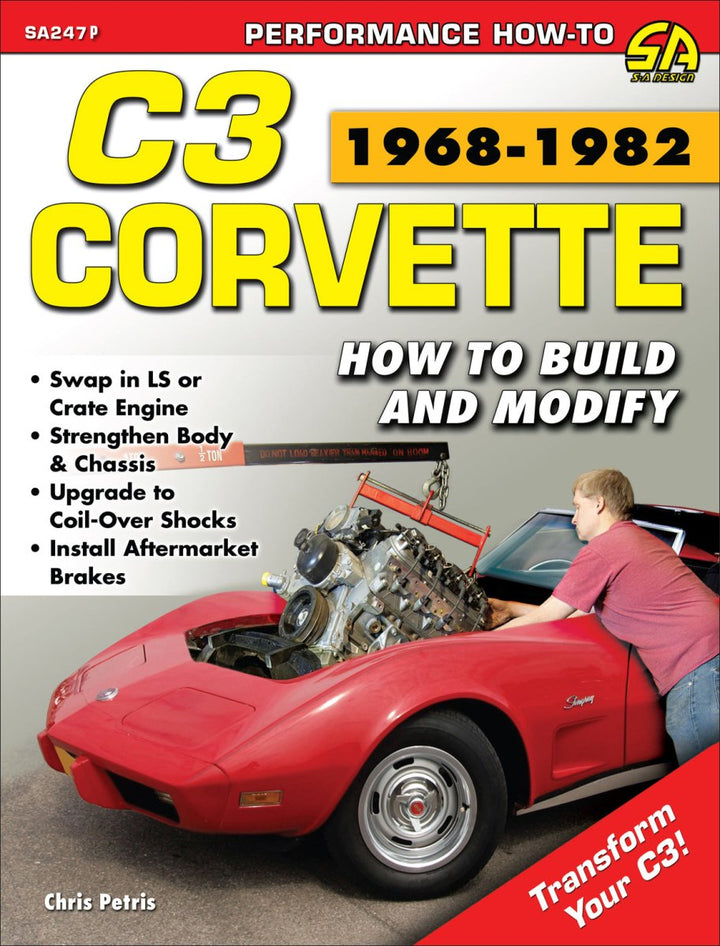About a half-million Corvettes were sold between 1968 and 1982, and the distinctive Shark body style with the combination of V-8 power has gained legendary status. Some Corvettes are too rare and valuable to be modified. These include the big-block cars built between 1968 and 1974, which command big dollars at auctions. However, the vast majority of Corvettes, built between 1975 and 1982, are affordable and plentiful, and these are ideal for high-performance builds.
Many Corvettes from this era are often considered weekend cruisers because they carry antiquated brakes, steering, and suspension, and also anemic V-8 engines with 165-220 horsepower. Lacking modern technology, these 31-year-old or older cars are ripe for a high-performance transformation. And with the right build-up plan, products, and services, they can become high-performance sports cars that rival current sports cars on the road today. Corvette expert and builder Chris Petris shows how to transform a mundane C3 into a standout, high-performance car. The most popular upgrades to every component group are covered including engine, transmission, differential, front suspension, rear suspension, steering, chassis, electrics, interior, tires and wheels, and more. With this information, you will confidently know all the products and procedures that make the car as a whole a far better performer than stock.
Corvette C3: How to Build and Modify is the ideal book for the at-home mechanic as well as the adept enthusiast supervising the build-up of a Corvette. Whether it's mildly modifying your Corvette for greater comfort and drivability or substantially modifying it for vastly improved acceleration, braking, and handling, this book has a massive amount of information to help accomplish the reader's goals.
Acknowledgments
Introduction
Chapter 1:
Engine Modifications
Inspection and Testing
Intake Manifolds
Cylinder Heads
Camshaft Selection and Installation
Chapter 2:
Crate Engine or LS Engine?
Crate Engines
Crate Sources
LS Engines
LS1 Install
Engine Setup and Tuning
Chapter 3:
Power Adders
Nitrous Oxide
Nitrous Flow Control
Supercharging and Turbocharging
Superchargers
Turbochargers
Intercoolers
Chapter 4:
Performance Fuel Systems
Carburetors
Carb Sources
Fuel Injection
EFI Manufacturer Options
Wiring
Fuel System
Aftermarket Fuel Tanks
Fuel Lines
Chapter 5:
Exhaust Systems
Headers
Exhaust System Obstacles
Catalytic Converters
Mufflers
Kit Options
Chapter 6:
Performance Cooling System
Cooling System Design
Radiator Choice
Tube Requirements
Coolant Flow Rate
Cooling Fans
Ancillary Cooling Systems
Cooling System Tips
Accessory Drive Systems
Aftermarket Kits
Chapter 7: Transmissions and Drivelines
Manual Transmission Technology
Transmission Gearing
Transmission Options
Clutches
Automatic Transmissions
Modify or Swap?
The Ultimate Swap: A 4L60E
Transmission Installation
Chapter 8:
Driveline
Differential
Axle and Driveshaft
Universal Joints
Chapter 9: Aftermarket Chassis Installation
Do You Need One?
Three Project Examples
Prep for Body Removal
Body Cushion Removal
Lifting the Body
Suspension and Drivetrain Installation
Chapter 10:
Chassis Modifications
Damage Inspection
Front Suspension and Steering
Rear Suspension
Springs
Shocks
Coil-Over Kits
Anti-Roll Bars
Chassis Stiffening and Bracing
Alignment
Chapter 11:
Brake Upgrades
Calipers
Disc Pads
Disc Brake Rotors
Brake Bias
Brake Boosters
Brake Fluid
Brake Bleeding
Performance Brake Kits
Chapter 12:
Wheels and Tires
Wheels
Wheel Fitment
Wheel Upkeep
Tires
Tire Balancing
Tire Wear
Chapter 13:
Interior Upgrades
Seat Belts
Rollbars
Roll Cages
Seating
Gauges
Steering Wheels
Pedal Pads
Safety Equipment
Source Guide





